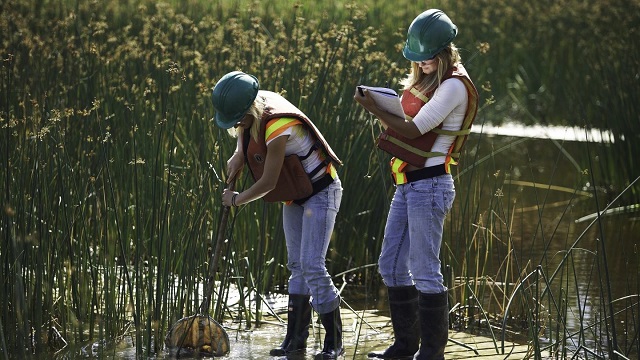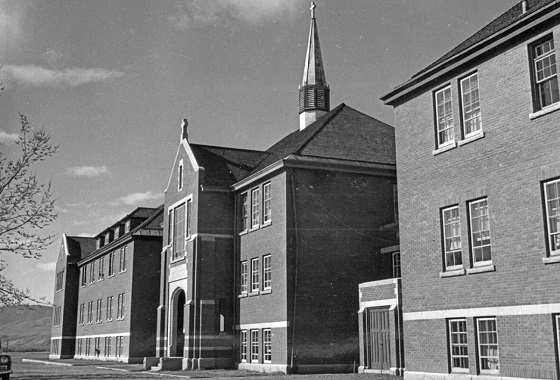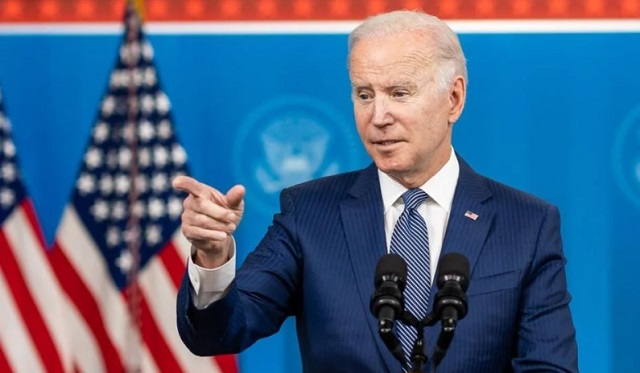Alberta
Wetlands spontaneously forming in oil sands region’s reclaimed boreal forest

Suncor Energy employees monitoring wetlands in the oil sands in northern Alberta. Photo courtesy Suncor Energy
From the Canadian Energy Centre
By Will GibsonWetlands and peatlands are a crucial part of the boreal forest’s ecosystem
A zoologist by training, Jan Ciborowski has spent more than three decades wading through wetlands in the Great Lakes and northeastern Alberta. During that time, he has come to appreciate how nature can change the best laid plans of even the smartest scientists and engineers.
Ciborowski and a team of undergraduate and graduate students are now studying a recently documented phenomenon that highlights nature’s guiding hand: spontaneous wetlands forming in reclaimed areas in the oil sands.
These so-called “opportunistic wetlands” began developing on oil sands sites reclaimed and planted to become forests decades ago at Suncor Energy’s Base Mine and Syncrude’s Mildred Lake Mine north of Fort McMurray.
“Up to 18 per cent of the reclaimed area expected to become forests have seen wetlands spontaneously forming. We are investigating whether they are likely to persist and forecast whether they will be able to sustain themselves,” says Ciborowski, who has held the NSERC/COSIA Industrial Research Chair in Oilsands Wetlands Reclamation at the University of Calgary’s Department of Biological Sciences since 2019.
“We can make forecasts about what will develop over hundreds of years when you reclaim an area but it’s not in our hands. Nature makes those decisions.”
Wetlands and peatlands are a crucial part of the boreal forest’s ecosystem, serving as vital habitat to hundreds of species of wildlife, including waterfowl, songbirds, and mammals such as beaver and moose. They act like sponges, absorbing precipitation and run-off that prevents flooding, and providing water during dry periods to the surrounding upland forests. Peatlands also serve as sinks to store carbon.
Because oil sands companies are legally committed to reclaim their leases to a status equivalent to prior to disturbance, they benefit from wetlands on their reclaimed sites.
The two oldest mining operations — Suncor’s Base Mine and Syncrude’s Mildred Lake Mine — have constructed man-made wetlands on reclaimed sites, where the companies have conducted research.
This is why the presence of opportunistic wetlands, which have been forming on their own, have created a great deal of interest within the industry.
Ciborowski’s team is studying 120 wetlands in the region ranging from two to 40 years of age. Half are on reclaimed oil sands sites and the other half are not.
“These are all very young compared to mature peatlands that have taken hundreds of years to develop. We are monitoring water quantity, water quality, landscape disturbance, and the colonizing plants and animals to understand how conditions develop and to forecast wetlands’ succession,” he says.
Outside of the oil sands, opportunistic wetlands can form when water balances change after forest fires consume the trees, or when beaver activity causes ponds to start forming.
“These can be our frame of reference for comparison with the wetlands forming on reclaimed landscapes. The real challenge is being able to understand whether those wetlands will remain when the trees grow to maturity,” he says.
While it is hard to forecast the future for opportunistic wetlands, Ciborowski has seen how early studies have influenced the science of reclamation and practices within the industry.
“What’s exciting about our work is we’ve gathered experts in a number of different disciplines — hydrology, geosciences, plant ecology, aquatic ecology to name a few — to work together on reclamation science. My belief in research is that collaboration is crucial. One can’t expect to find the necessary breadth of expertise to do it in a single lab.”
Alberta
Alberta’s government honours the province’s top athletes, teams, coaches and officials with 2023 Sport Recognition Awards

Minister of Tourism and Sport Joseph Schow presents the 2023 Alberta Sport Recognition Awards, honouring the province’s top athletes, teams, coaches and officials.
Celebrating excellence in Alberta sport |
Alberta is a global leader in sport, and it’s thanks to the athletes, coaches and officials who dedicate themselves to excellence in their craft. The Alberta Sport Recognition program was established in 1987 to acknowledge the outstanding achievements and commitment of coaches, officials and volunteers in the province.
Recipients of the 2023 Sport Recognition Awards represent the best in sport from across the province, from exceptional athletes to hard-working coaches and officials. Through their unwavering dedication to sport, these individuals are contributing to Alberta’s reputation as a global leader in sport and help make our province the best place in the world to live, visit and play.
“These high-performance athletes, coaches, and officials have demonstrated extraordinary achievement in international and national competitions and are deserving of recognition for their efforts. I am proud of their contributions and grateful for their leadership in making Alberta a province that lives the spirit of sport.”
“The award recipients have demonstrated dedication, passion and excellence which have set them apart as true champions in their respective fields. Many have reached the pinnacle of performance and each of the recipients has demonstrated unparalleled commitment and skill, inspiring others to reach for excellence in all they do.”
The 2023 award recipients are:
- Junior Male Athlete of the Year – Nikita Ciudin – Sprint Canoe
- Junior Female Athlete of the Year – Julia Bartlett – Biathlon
- Junior Team of the Year – Team Tao – Curling – Johnson Tao, Jaedon Neuert, Ben Morin, Adam Naugler, Zach Davies and Skip Wilson (coach)
- Open Male Athlete of the Year – Jeremiah Lauzon – Athletics
- Open Female Athlete of the Year – Alexandria Loutitt – Ski Jumping
- Open Team of the Year – Team Canada 3×3 Basketball – Michelle Plouffe, Katherine Plouffe, Paige Crozon, Kacie Bosch, Jamie Scott, and Kim Gaucher (coach)
- Coaching Recognition Award: Rachel Koroscil – Biathlon
- Coaching Recognition Award: Marty Birky – Basketball
- Technical Official Recognition Award – Barb Bush – Springboard Diving
- Technical Official Recognition Awards – Matthew Kallio – Basketball
Quick facts
- In 2002, the Athlete and Team of the Year awards were added to the awards program to acknowledge high performance athletes and teams who are promoting Alberta on the national and international stage, and recognize their pursuit of sport development goals.
- The Coach Recognition Award recognizes coaches for their outstanding achievements in developing Alberta’s amateur athletes.
- The Official Recognition Award recognizes outstanding achievements in and commitments to officiating.
- Award recipients were selected by a committee and considered results from the 2022/2023 competition season.
Alberta
Free Alberta Strategy petition demanding PM Trudeau fire Steven Guilbeault passes 13,000 signatures

News release from Free Alberta Strategy
Are you tired of watching elected officials flout the law and disregard public concerns with impunity?
Are you frustrated by a federal government that prioritizes arrogance over accountability?
If so, you’re not alone.
Over 13,000 people have signed our petition calling on Justin Trudeau to fire Steven Guilbeault.
Once one of Greenpeace’s most disruptive forces, Guilbeault has spent enough time in an orange jumpsuit to build up a reputation for deliberately ignoring both law enforcement and the courts.
Since then, his career has been marked by a troubling disregard for both legal boundaries and public sentiment.
In 2001, Guilbeault was found guilty of mischief for scaling the CN Tower in Toronto and displaying a banner.
He received a sentence of one year’s probation, was mandated to complete 100 hours of community service in Montreal, and was ordered to pay $1,000 in restitution.
The incident incurred approximately $50,000 in costs for the tower operators.
Shortly thereafter, Guilbeault orchestrated another audacious act, leading a Greenpeace team in a demonstration at the Calgary residence of then Alberta Premier Ralph Klein and his wife, Colleen.
They erected a banner, positioned ladders against the house, and ascended to the roof to install a solar panel.
The intrusion deeply unsettled Colleen Klein, who was alone at the time and feared a home invasion – she resorted to grabbing a broom for defense.
Despite his controversial background, Justin Trudeau’s decision to appoint Guilbeault as Minister of Environment and Climate Change raised eyebrows and elicited criticism.
Jason Kenney, then premier of Alberta, accurately predicted the consequences of Guilbeault assuming a significant role in Justin Trudeau’s cabinet.
“His own personal background and track record on these issues suggests someone who is more an absolutist than a pragmatist when it comes to finding solutions,” Kenney said.
It’s perhaps no surprise then that Guilbeault’s response to legal setbacks in his political career, such as the Supreme Court’s ruling on the unconstitutionality of his Impact Assessment Act, has been dismissive, indicating a stubborn adherence to his own agenda rather than a willingness to heed judicial guidance.
Instead of accepting that he was wrong and repealing the law, Guilbeault wants to pass minor amendments and pretend like the Supreme Court ruling never happened.
Worse, the amendments – buried 552 pages into a 686-page budget implementation bill – don’t fix the problem.
Guilbeault still has the power to control projects that fall under provincial jurisdiction.
Consequently, tensions between the federal and provincial governments have escalated, with Alberta poised to immediately challenge the amended legislation in court once again.
This charade is getting old.
This pattern of defiance and disregard for legal constraints has become wearisome, eroding public trust in the integrity of federal institutions.
The rotation of headlines proclaiming federal overreach and constitutional breaches underscores a troubling trend within the governing party, where arrogance appears to have supplanted prudent governance.
Guilbeault, with his checkered past and continued ignorance of the law since becoming Minister, are crippling public confidence.
A few months ago, we launched a petition calling on Justin Trudeau to see the light, and fire his most controversial Minister.
Since then, things have only gotten worse.
If you agree, and think Guilbeault should be fired, please sign our petition today:
Then, send this petition to your friends, family, and every Albertan so that they can sign too!
Regards,
The Free Alberta Strategy Team
-

 COVID-191 day ago
COVID-191 day agoWenstrup Releases Francis Collins’ House Testimony
-

 Frontier Centre for Public Policy2 days ago
Frontier Centre for Public Policy2 days agoThey spent $8,000,000 without putting one shovel in the ground
-

 Economy1 hour ago
Economy1 hour agoBiden environmental agenda under fire for increasing costs for Americans
-

 Alberta1 hour ago
Alberta1 hour agoAlberta’s government honours the province’s top athletes, teams, coaches and officials with 2023 Sport Recognition Awards
-

 illegal immigration3 hours ago
illegal immigration3 hours agoBiden And Red States Are On Immigration Collision Course Heading For Supreme Court





